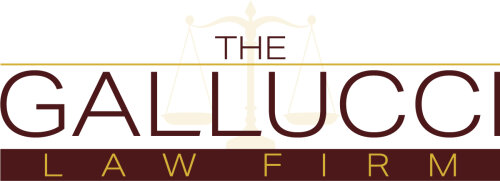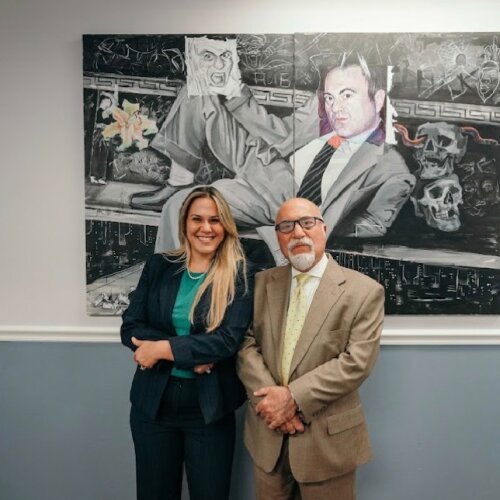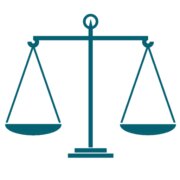Best Criminal Litigation Lawyers in New York
Share your needs with us, get contacted by law firms.
Free. Takes 2 min.
Or refine your search by selecting a city:
List of the best lawyers in New York, United States
About Criminal Litigation Law in New York, United States
Criminal litigation in New York refers to the legal process of prosecuting and defending individuals or entities accused of committing crimes as defined by New York State law and, in some instances, federal law. The process typically begins with an investigation and arrest, followed by arraignment, pre-trial motions, trial, and, if necessary, sentencing and appeals. New York has its own unique procedures and statutes that govern the criminal justice process, including distinctions between misdemeanors, felonies, and violations. The purpose of criminal litigation is to determine whether the accused person is legally responsible for an alleged offense and, if so, to impose an appropriate penalty.
Why You May Need a Lawyer
Criminal litigation can have serious consequences, including incarceration, fines, a permanent criminal record, and collateral effects on employment or immigration status. There are several situations in which someone may require legal help in the context of criminal litigation in New York:
- Being arrested, charged, or investigated for a crime
- Receiving a summons or court appearance notice
- Being interviewed or contacted by law enforcement
- The need for representation during interrogations or plea negotiations
- Having a prior criminal record and facing new charges
- Aiming to seal, expunge, or modify criminal records
- Appealing a criminal conviction or sentence
- Victim of crime seeking legal rights or restitution
- Facing collateral consequences such as loss of professional licenses
- Complex cases involving federal charges or multiple jurisdictions
A qualified criminal defense attorney can protect your rights, ensure proper legal procedures are followed, advocate for your interests, and work toward the best possible outcome.
Local Laws Overview
New York criminal law consists of statutory law found in the New York Penal Law, procedural law in the Criminal Procedure Law, and relevant case decisions. Key aspects to be aware of include:
- Classification of Crimes: Criminal offenses are generally divided into felonies, misdemeanors, and violations, each with varying degrees of severity and potential penalties.
- Arrest and Arraignment: After an arrest, the accused must be brought before a judge without unnecessary delay, where they will be informed of charges and can enter a plea.
- Bail and Detention: New York’s bail reform laws have reduced pre-trial detention for many non-violent offenses, but certain serious crimes may still result in bail or remand.
- Right to Counsel: Individuals accused of crimes have the constitutional right to legal representation, with the option for court-appointed counsel when they cannot afford an attorney.
- Plea Bargaining: Most criminal cases are resolved through plea negotiations, subject to judicial approval.
- Trial Process: Defendants have the right to a jury trial for serious offenses. The prosecution must prove guilt beyond a reasonable doubt.
- Appeals: Convictions and sentences may be appealed to higher courts under certain circumstances.
- Criminal Record Sealing: Some non-violent convictions may be eligible for sealing after a specified period, but not all crimes can be expunged or sealed.
Frequently Asked Questions
What should I do if I am arrested in New York?
Remain calm, exercise your right to remain silent, and request to speak with an attorney immediately. Do not answer questions or make statements until you have legal representation.
What is the difference between a misdemeanor and a felony in New York?
A misdemeanor is a less serious crime generally punishable by up to one year in jail. A felony is more serious and can result in more than one year in state prison.
How does bail work in New York after recent reforms?
Bail is typically limited to more serious crimes. Many non-violent offenses are now subject to release without bail, though judges can still set bail or remand for certain cases.
Do I need a lawyer if I plan to plead guilty?
Yes, it is strongly advised. A lawyer can advise you of your rights, possible defenses, and the implications of a guilty plea, including collateral consequences.
Can police search my property without a warrant?
Generally, law enforcement needs a warrant to search your home, car, or possessions unless an exception applies, such as consent or exigent circumstances.
Will a criminal conviction stay on my record forever?
Some convictions may be eligible for sealing under New York law, but many, especially violent felonies, remain on your record. Speak to an attorney about your specific case.
What happens at arraignment?
You will be formally informed of the charges against you, asked to enter a plea, and issues like bail or release will be addressed. You have the right to an attorney at this stage.
If I am innocent, do I still need a lawyer?
Yes. Even if you believe you are innocent, legal processes can be complex and you need a lawyer to protect your rights and build a strong defense.
Are all criminal cases tried by jury?
Not all. Many less serious offenses can be tried before a judge alone (bench trial). Felony cases generally include the right to a jury trial.
Can I appeal a conviction in New York?
Yes, you can appeal a conviction or sentence, but time limits and specific legal grounds apply. An attorney can assess your eligibility for appeal.
Additional Resources
- New York State Unified Court System: Provides official information on court procedures, forms, and case lookup tools.
- Legal Aid Society: Offers free or low-cost legal services to qualifying individuals facing criminal charges in New York City.
- New York State Bar Association: Can help you find qualified attorneys and provides educational materials about criminal law.
- Office of the Appellate Defender: Specializes in appeals for indigent clients in New York City.
- National Association of Criminal Defense Lawyers (NACDL): Offers resources, attorney directories, and educational content for the public.
Next Steps
If you are facing criminal charges or under investigation in New York, it is crucial to act quickly to protect your rights. Consider the following steps:
- Contact a qualified criminal defense attorney with knowledge of New York law as soon as possible
- Gather and organize relevant documents, including court notices, police reports, or any related correspondence
- Do not discuss your case with law enforcement, friends, or on social media without legal guidance
- If you cannot afford a private attorney, request court appointed counsel at your earliest court appearance
- Educate yourself about your rights and legal options using reputable resources
Taking swift and informed action can make a significant difference in the outcome of your case. Legal professionals can help you navigate the complex criminal justice system and advocate for your best interests.
Lawzana helps you find the best lawyers and law firms in New York through a curated and pre-screened list of qualified legal professionals. Our platform offers rankings and detailed profiles of attorneys and law firms, allowing you to compare based on practice areas, including Criminal Litigation, experience, and client feedback.
Each profile includes a description of the firm's areas of practice, client reviews, team members and partners, year of establishment, spoken languages, office locations, contact information, social media presence, and any published articles or resources. Most firms on our platform speak English and are experienced in both local and international legal matters.
Get a quote from top-rated law firms in New York, United States — quickly, securely, and without unnecessary hassle.
Disclaimer:
The information provided on this page is for general informational purposes only and does not constitute legal advice. While we strive to ensure the accuracy and relevance of the content, legal information may change over time, and interpretations of the law can vary. You should always consult with a qualified legal professional for advice specific to your situation.
We disclaim all liability for actions taken or not taken based on the content of this page. If you believe any information is incorrect or outdated, please contact us, and we will review and update it where appropriate.
Browse criminal litigation law firms by city in New York
Refine your search by selecting a city.

















